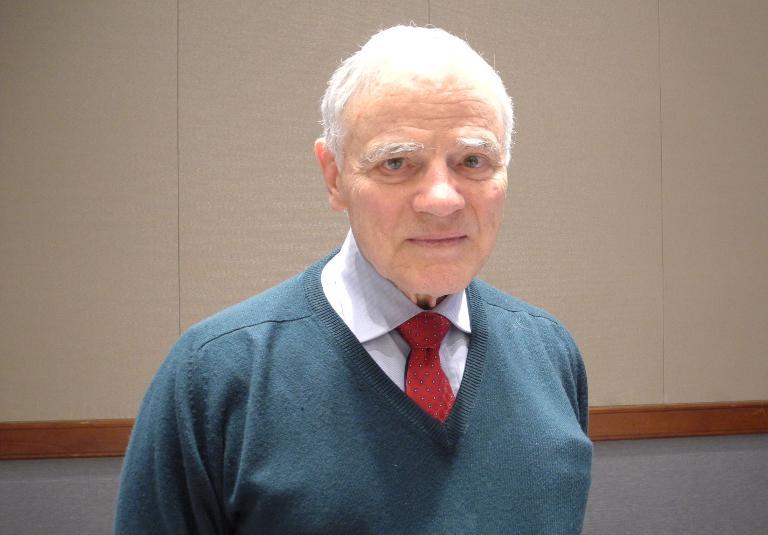Dr. Lee Hood and 100K Wellness Project in Yahoo! News
 isbscience.org/news/2014/02/15/dr-lee-hood-and-100k-wellness-project-in-yahoo-news/
isbscience.org/news/2014/02/15/dr-lee-hood-and-100k-wellness-project-in-yahoo-news/
(ABOVE: Dr. Lee Hood, President of Institute for Systems Biology, spoke about phase one of the 100K Wellness Project while attending the AAAS conference in Chicago on Feb. 14, 2014. Photo by Kerry Sheridan/Agence France-Presse)
Agence France-Presse reporter Kerry Sheridan interviewed Dr. Lee Hood on Feb. 14, 2014, about the first phase of the 100K Wellness Project. An excerpt from the article:
"The Hundred Person Wellness Project, which begins next month, will require round-the-clock monitoring of its subjects, who are presumed healthy at the time of enrollment.
Scientists will start by sequencing the entire genome of each participant. Then, for the next 25 years, they will take regular measurements of sleep patterns, heart rate, gut bacteria, proteins that track organ health, blood samples, immune cell activity and more."
To read the full article, please visit this link.





